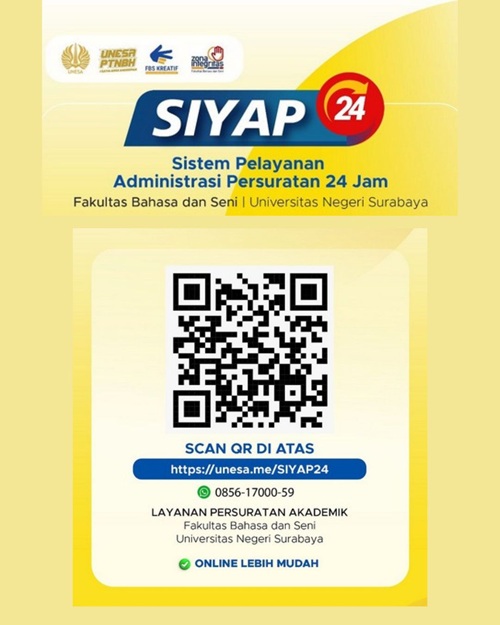Kosakata Bahasa Inggris Akademik untuk Karya Tulis Ilmiah

Pernahkah kalian memperhatikan kosakata bahasa Inggris yang digunakan di karya tulis ilmiah seperti skripsi dan artikel jurnal? Jika diperhatikan baik-baik, pilihan kata yang digunakan berbeda dengan yang digunakan dalam percakapan sehari-hari. Dalam konteks akademis atau profesional, yang dipakai adalah kosakata formal.
Tabel berikut ini memuat kosakata bahasa Inggris umum yang dipakai sehari-hari dan padanan kata akademiknya.
|
No |
Kosakata umum |
Kosakata akademik |
Contoh Penggunaan dalam Konteks Akademik |
|
|
|
|
|
|
1 |
problem |
obstacle, constraint, challenge |
The primary obstacle in this research is time management. |
|
2 |
get |
obtain, acquire, gain |
Participants were asked to obtain informed consent before the study began. |
|
3 |
need |
require, necessitate |
This process requires a thorough understanding of the methodology. |
|
4 |
help |
assist, facilitate, aid |
The teacher’s feedback assists students in improving their writing skills. |
|
5 |
show |
demonstrate, illustrate, reveal |
The findings reveal clear relationship between motivation and learning outcomes. |
|
6 |
find out |
discover, uncover, identify |
The study seeks to uncover new strategies for language acquisition." |
|
7 |
talk about |
discuss, address, examine |
This paper examines the role of technology in language teaching. |
|
8 |
look into |
investigate, explore, analyze |
Researchers aim to investigate the effects of extensive reading on vocabulary development. |
|
9 |
fix |
repair, rectify, correct |
Measures were taken to rectify the inconsistencies in the data collection process. |
|
10 |
start |
commence, initiate, launch |
The program will commence in the fall semester. |
|
11 |
end |
conclude, terminate, complete |
The study will conclude once all data have been analyzed. |
|
12 |
give up |
abandon, relinquish, surrender |
The hypothesis was abandoned due to insufficient evidence. |
|
13 |
ask for |
request, solicit |
The participants were requested to complete the survey. |
|
14 |
get rid of |
eliminate, eradicate, remove |
The intervention seeks to eliminate language learning barriers. |
|
15 |
deal with |
address, tackle, manage |
This paper addresses the challenges of implementing blended learning in EFL classrooms. |
|
16 |
give |
provide, offer, supply |
The teacher provided constructive feedback on the students' assignments." |
|
17 |
put off |
postpone, defer, delay |
The conference was postponed due to unforeseen circumstances. |
|
18 |
build up |
accumulate, develop, construct |
Over time, learners accumulate linguistic knowledge through exposure and practice. |
|
19 |
let |
allow, permit, enable |
The flexible curriculum allows students to select courses based on their interests. |
|
20 |
show up |
appear, emerge, manifest |
These patterns began to emerge during the second phase of data analysis. |
|
21 |
buy |
purchase, procure, acquire |
The institution plans to purchase new software to enhance online learning. |
|
22 |
say sorry |
apologize, express regret |
The author apologizes for any errors in the initial publication of the article. |
|
23 |
think about |
consider, reflect on, contemplate |
The paper considers various pedagogical approaches to language instruction. |
|
24 |
look at |
review, examine, investigate |
The study reviews different learning styles in language acquisition. |
|
25 |
work out |
resolve, solve, address |
The research aims to resolve the discrepancies in the data interpretation. |
|
26 |
show |
display, exhibit, present |
The results were displayed graphically to enhance comprehension. |
|
27 |
go up |
increase, rise, escalate |
Students engagement increased significantly after the intervention. |
|
28 |
cut down |
reduce, decrease, diminish |
Efforts were made to reduce the participants' anxiety levels during the test. |
|
29 |
keep |
maintain, retain, preserve |
It is essential to maintain a positive learning environment for language learners. |
|
30 |
try |
attempt, endeavor, strive |
The researcher attempted to develop a new approach to teaching grammar. |
Smoga bermanfaat.
